Language Programs Information
For many students, SLI is the first step toward an exciting future involving languages! The Summer Language Institute (SLI) covers the beginner level 1001-1002 courses for these foreign languages.
Learning a language through the SLI can also prepare students for other avenues in study and research such as, International Affairs, Strategic Studies, East Asian Studies and other interrelated areas.
Study abroad opportunities are also available for those who choose to continue with their target language. There are dozens of scholarships, grants, and fellowships that target critical language learners interested in studying and applying their skills abroad.
Arabic SLI
Arabic SLI is a language and culture-intensive immersion program, focusing on developing communication skills. The weekly program features daily language class sessions followed by cultural experiences. Language class sessions utilize oral practices through pair-work, role playing, singing songs, listening comprehension practices through the textbook and language lab. In addition to the language instructor, there are tutors available to assist students outside the classroom.
Weekend Activities
- Field trip to Atlanta during which students visit an Arab American community, taste Middle Eastern dishes, and practice the vocabulary learned in class.
- Alif Institute
- Watch Middle Eastern movies
- Attend workshops on ethnic arts and crafts
Our Students Say
"This program was very eye opening about the language and culture behind it."
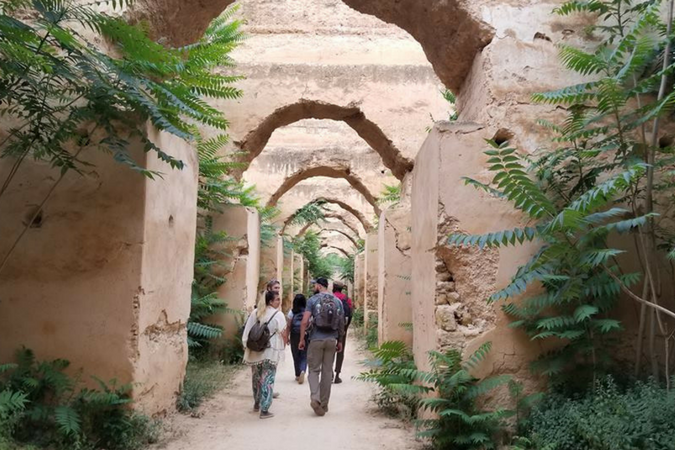
Learn More about Arabic
- Arabic is written from right to left.
- There are 28 letters in the Arabic alphabet.
- There are no upper case or lower case letters in Arabic.
- An estimated 220 million people across 18 or more countries speak some form of Arabic.
- There are around 30 distinct variations of Arabic. SLI utilizes an integrated approach to Arabic language pedagogy incorporating educated spoken and modern written Arabic.
Chinese SLI
Chinese SLI started in 2008. It is a language and culture-intensive immersion program, focusing on developing communication skills. The daily schedule includes class sessions, language lab hours, and cultural activities. Class sessions during the day focus on acquiring language skills through a variety of activities in the classroom, language lab, and other school facilities such as the dining hall and the bookstore. The evening sessions focus on review, written assignments, and individual practices. In addition to the language instructor, there are tutors available to assist students outside the classroom.
Weekend Activities
- Field trip to the Chinese community in Atlanta during which students will visit a Chinese market and a bookstore, taste Chinese dishes, and use Chinese in an authentic environment.
- Watch Chinese movies
- Participate in Chinese game days
- Learn to make authentic Chinese food
Our Students Say
"The amount of support from the tutors and instructor made me feel like I could always ask a question."
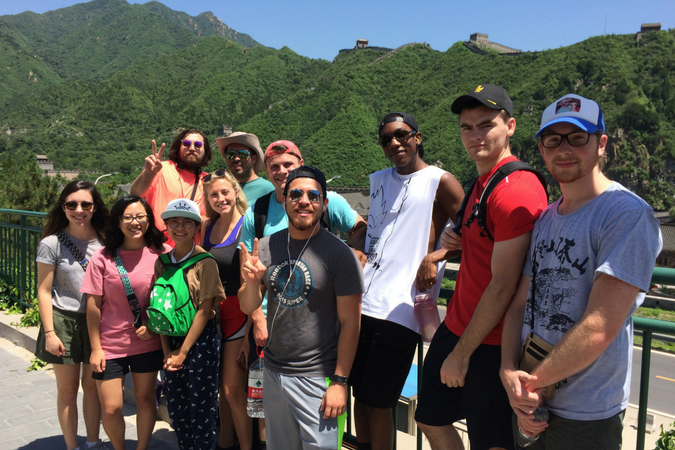
Learn More about Chinese
- Chinese does not have an alphabet but pinyin is the phonetic system that exists primarily to help nonnative speakers learn.
- Chinese is a tonal language, meaning a single syllable can have 4 different meanings based on the tone associated with it. Context helps to clarify but tones are hugely important!
- Learning to differentiate between different tones in Chinese actually helps develop certain cognitive abilities and enables speakers to utilize the right frontal lobe of the brain for language while non tonal languages only utilize the left.
- Almost 15% of the world speaks Mandarin, with an estimated 955 million total first and second speakers it is easily the world’s most common language.
Chinese at UNG
Japanese SLI
Japanese newest addition to SLI, having its start in summer 2018. Japanese SLI is a language and culture-intensive immersion program, focusing on developing communication skills. The weekly program features daily language class sessions followed by cultural experiences. Language class sessions utilize oral practices through pair-work, singing songs, listening comprehension practices through the textbook and language lab. In addition to the language instructor, there are two tutors to assist students outside the classroom.
Weekend & Cultural Activities
- Field trip to the Japanese community in Atlanta. During the field trip, students visit a market and a bookstore, taste Japanese dishes, and practice the vocabulary learned in class with native Japanese speakers.
- Workshops on ethnic arts and crafts.
- Japanese movies.
- cooking Japanese dishes.
Our Students Say
"I felt like I did well because of the way the classes were structured, we were immersed in the language all day long."
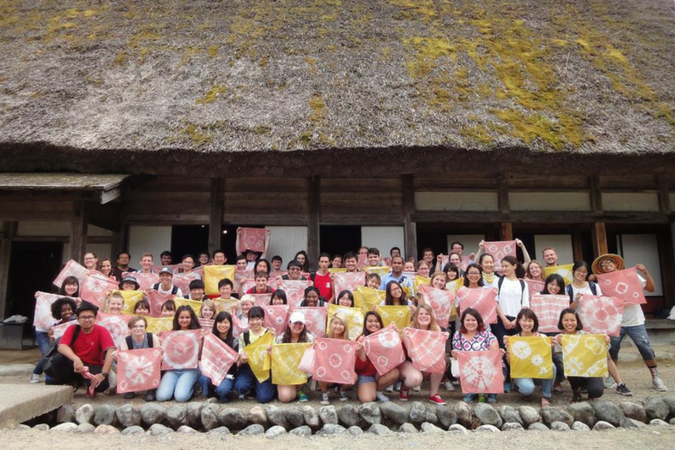
Learn More about Japanese
- There are upwards of 125 million Japanese speakers worldwide, but mostly located in Japan.
- There are 4 different systems of writing in Japanese, these are: hiragana, kanji, katakana and romanji.
Japanese at UNG
- Japanese Minor
- Study Abroad Opportunities with Japanese
Korean SLI
Korean SLI is a language and culture-intense immersion program, focusing on developing communication skills. The weekly program features daily language class sessions followed by cultural experiences. Language class sessions utilize oral practices through pair-work, singing songs, listening comprehension practices through the textbook CD, K-POP and authentic video skits. Between classes, mandatory lab hours are given to review materials learned in a previous class session and prepare for a quiz under the supervision of a Korean teaching assistant. After daily sessions, a Korean resident tutor is available to help an individual student’s language practice based on their individual needs.
Weekend & Cultural Activities
- Field trip to the Korean community in Metro-Atlanta, during which students will visit a Korean market and bookstore, taste Korean dishes at a Korean restaurant, and go to a Korean singing room to sing Korean songs learned in class.
- Korean movies
- workshops on ethnic arts and crafts
- cooking Korean dishes
- calligraphy and origami
Our Students Say
"We covered a lot of new material every day. It took some time to adjust to the workload but the time management and study skills I gained from SLI will really help me as I start taking classes in the fall."
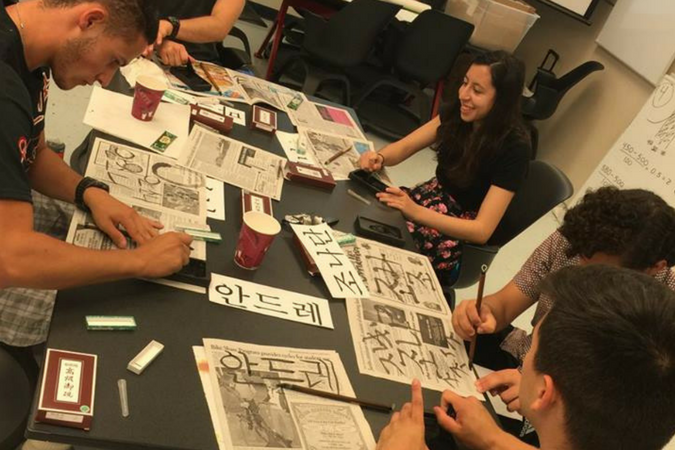
Lean More about Korean
- Around 70 million people speak Korean, primarily in South Korea and North Korea, but also in China, Japan, the USA and Central Asia.
- Korean does have an alphabet and is not tonal but is classified as a language isolate. This means it does not share a lineage with any other known language.
- Korean culture is reflected strongly in the languages elaborate honorific system. A speaker will need to use different verb endings depending on the relationship with the person they are talking to.
- Some Korean words you might already know:
- Taekwondo - the Korean Martial art
- Kimchi - a spicy fermented Korean dish
Korean at UNG
Russian SLI
Russian SLI is a language and culture-intensive immersion program, focusing on developing communication skills. The weekly program features daily language class sessions followed by cultural experiences. Language class sessions utilize oral practices through pair-work, singing songs, listening comprehension practices through the textbook and language lab. In addition to the language instructor, there are two tutors to assist students outside the classroom.
Weekend & Cultural Activities
- Field trip to the Russian community in Atlanta. During the field trip, students visit a European market and a bookstore, taste Russian dishes, and practicing the vocabulary learned in class with World War II veterans and native Russian speakers.
- Russian movies
- workshops on ethnic arts and crafts (ex. Russian nesting dolls)
- cooking Russian dishes
Our Students Say
"This summer I studied abroad with the friends that I started learning language with in SLI last year. I likely would not have been able to study abroad if I had not started studying a language with SLI."
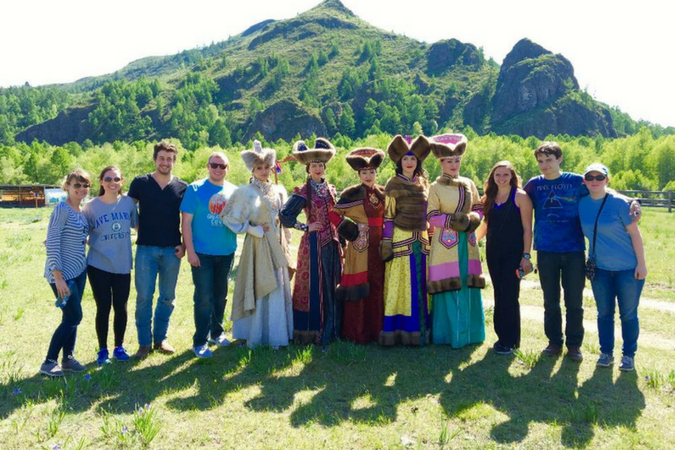
Learn More about Russian
- Russian is the official language of Ukraine, Belarus, Kazakhstan and of course Russian but can be understood in varying other areas of East Europe and Central Asia.
- Over 250 million people in the world can speak Russian.
- The Russian Alphabet has 33 letters.
- Some Russian letters look exactly like Latin letters. The tricky thing is that only some have the same sounds while others are expressed in a completely different way.